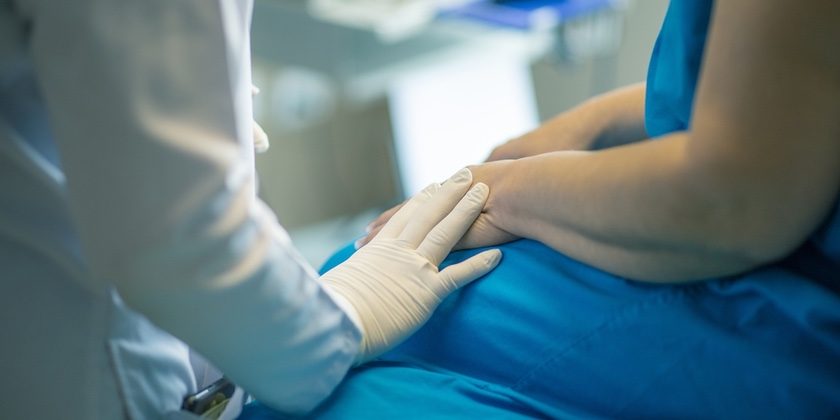Wales’ lagging behind in pancreatic cancer survival rates, Senedd told

Survival rates for pancreatic cancer in Wales lag behind much of the rest of the world, with many people dying within weeks of diagnosis, the Senedd heard.
Delyth Jewell, Plaid Cymru’s deputy leader, shared her personal experience of pancreatic cancer, having lost her own grandmother to the cruel disease.
She said: “She’d been unwell over Christmas. She hadn’t been herself. She’d been complaining about stomach aches, but she didn’t like to bother the doctor.
“I remember on Christmas Day that she had come over to our house wearing a shawl over her head. I’d never seen her wearing a shawl like that. She looked so frail.
“Within weeks, well, less than that, days, her condition got horribly worse.
“She went into hospital, and she was in so much pain; her fingers had swollen so badly, they had to cut the wedding ring off her finger.
“She slipped away, and all they could do was manage the pain. I don’t want anyone to have to go through what she went through, what my mother went through in losing her like that.”
‘Shameful’
Mark Isherwood told the chamber that Wales ranks 30th out of 33 countries with comparable data on five-year survival for people with pancreatic cancer.
The Conservative MS for North Wales said pancreatic cancer is the deadliest common cancer, affecting 500 people a year in Wales.
He told the Senedd that three in five are diagnosed at a late stage and more than half die within three months.
Only 6% survive for more than five years, compared with 50% for other cancers.
Mr Isherwood, who chairs the cross-party group on disability, told MSs that the “shocking and shameful” statistics have barely changed in 50 years.
He said: “Seven in 10 people diagnosed with pancreatic cancer are receiving no treatment, either because their cancer is detected too late or because their referrals take too long.”
Symptoms
Mike Hedges, a Labour backbencher who represents Swansea East, called for specialist pancreatic cancer roles in each health board.
He said many of the symptoms – such as yellow eyes, itchy skins, persistent stomach pain and weight loss – could indicate other conditions.
Mr Hedges, who chairs the cross-party group on rare diseases, added that the cancer is difficult to detect during routine medical examinations.
He called for support for researchers to improve the identification of pancreatic cancer and ensure the best possible outcomes.
James Evans told MSs incidences of pancreatic cancer have been on the rise, making it the 11th most common cancer in the country.
During the debate on Wednesday December 6, the Conservative MS for Brecon and Radnorshire added that it is the fifth most common cause of cancer-related death in Wales.
‘Deadly’
Jack Sargeant, a Labour backbencher who represents Alyn and Deeside, quoted a constituent who got in touch to share their own experience.
The constituent said: “This is a deadly cancer with aggressive progression and late-stage diagnosis means it is too late – with life expectancy being in weeks, not years.
“There should be a pancreatic cancer pathway from the point of suspicion and referral to diagnosis in 14 days and, ideally, less.”
Heledd Fychan, the Plaid Cymru MS for South Wales Central, highlighted groundbreaking research being led by Beatriz Salvador Barbero at Cardiff University.
Ms Fychan said Dr Salvador Barbero is being funded by Pancreatic Cancer UK to investigate biological changes that take place early in pancreatic cancer development.
Her Conservative counterpart Joel James raised concerns that 43% of pancreatic cancer diagnosis happens in A&E departments by which point it is often too late to treat.
‘Dreadful’
Eluned Morgan accepted that the Welsh Government must do better to provide hope for people who are given the dreadful diagnosis.
Wales’ health minister told the Senedd that outcomes for pancreatic cancer remain poor – not just in Wales but right across the world.
Baroness Morgan said Wales has introduced an accelerated pathway for the disease, adding that capacity has been increased at a specialist surgical centre in Swansea.
She said Wales is the first country in the UK to have its whole population covered by rapid diagnostic centres, which she described as an important step.
By Chris Haines, ICNN Senedd reporter
Spotted something? Got a story? Email [email protected]












